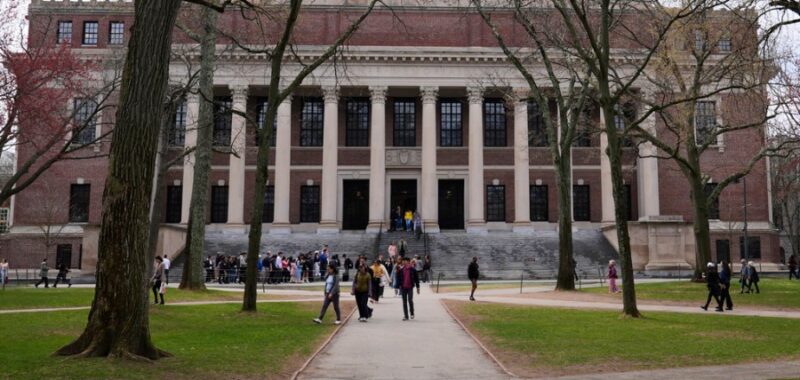
The Trump administration has sent Harvard University President Alan M. Garber a five-page list of demands that the university must comply with if it wants to continue receiving federal money. In addition to blocking $2.2 billion and threatening to block even more, President Trump has suggested the IRS look into revoking Harvard’s tax-exempt status if it doesn’t knuckle under.
Many conservatives believe it’s long past time for colleges and universities to change their ways — that they should cut the federal-subsidy cord and quit stifling right-leaning speech while embracing left-leaning speech and protests.
But the Trump administration is going much further. If it is allowed to enforce its demands, it not only threatens academic freedom, but it also threatens the religious freedom of religiously affiliated colleges, universities and seminaries.
Garber says Harvard is already making some needed changes — and, frankly, a lot needs to be changed, especially with respect to the university’s tolerance of antisemitic activity. However, Garber says that other demands are excessive and would require Harvard to surrender its independence, which it refuses to do.
The religious-liberty threat comes from the Trump administration’s demand giving the government a veto over all hiring, admissions and “viewpoint diversity.” With respect to hiring the letter says, “All hiring and related data shall be shared with the federal government and subjected to a comprehensive audit by the federal government during the period in which reforms are being implemented, which shall be at least until the end of 2028.”
Similarly, all admissions data must also be shared with the government and subjected to a “comprehensive audit.”
Even more troubling are the demands relating to viewpoint diversity. Harvard is required to commission an external party, approved by the government, which is “to audit the student body, faculty, staff, and leadership for viewpoint diversity, such that each department, field, or teaching unit must be individually viewpoint diverse.”
If a lack of viewpoint diversity in any department is detected, “viewpoint diversity must be reformed by hiring a critical mass of new faculty within that department or field who will provide viewpoint diversity.”
The letter goes on to say Harvard should “cease all preferences based on race, color, religion, sex, or national origin.” But with respect to religion, many religious colleges and seminaries hire professors and staff based on religious conformity. Some even have statements of faith that faculty and staff, and sometimes students, must agree to.
If the government can impose these changes on a secular university, can it also audit academic hires and students at religious educational institutions to ensure viewpoint diversity? What if those schools don’t take federal funds?
When I was a seminary student many years ago, the faculty notified the students that the feds announced they were coming to the campus to see if there were any civil rights violations among employees, threatening that federal funding could be canceled if violations were found. The seminary responded that the feds were welcome to visit, but insisted the school had never taken federal dollars.
There have been past Democratic administration officials who claimed that some people of faith used the constitutional protection of religious liberty as “code words for discrimination, intolerance, racism, sexism, homophobia, Islamophobia, Christian supremacy or any form of intolerance.”
Those individuals and their institutions could become the target of government retribution. Especially if a future administration perceives some association between certain religious views and political leanings.
The Trump administration can’t deny it would target religious education, because Harvard’s Divinity School is expressly included in its letter. And even if the Trump administration claimed that it would never impose these demands on other religious educational institutions, a different administration might.
But perhaps the bigger financial threat is to religious institutions’ tax-exempt status. Many religious colleges and seminaries don’t take federal funding, but they are tax-exempt, non-profit institutions. Revoking their tax-exempt status would be financially devastating. Donors would no longer receive a tax break for their contributions. And real estate and buildings might become subject to property taxes.
Conservatives who are cheering the Trump administration’s effort to crack down on Harvard need to think carefully. You don’t have to approve of everything Harvard does to see these requirements as a real threat to religious liberty. If this process is allowed to proceed, a different administration with different values could cite Trump’s example as justification for an assault on the religious liberty of affiliated colleges and seminaries that many conservatives hold dear.
Merrill Matthews is a public policy and political analyst and the co-author of “On the Edge: America Faces the Entitlements Cliff.”

